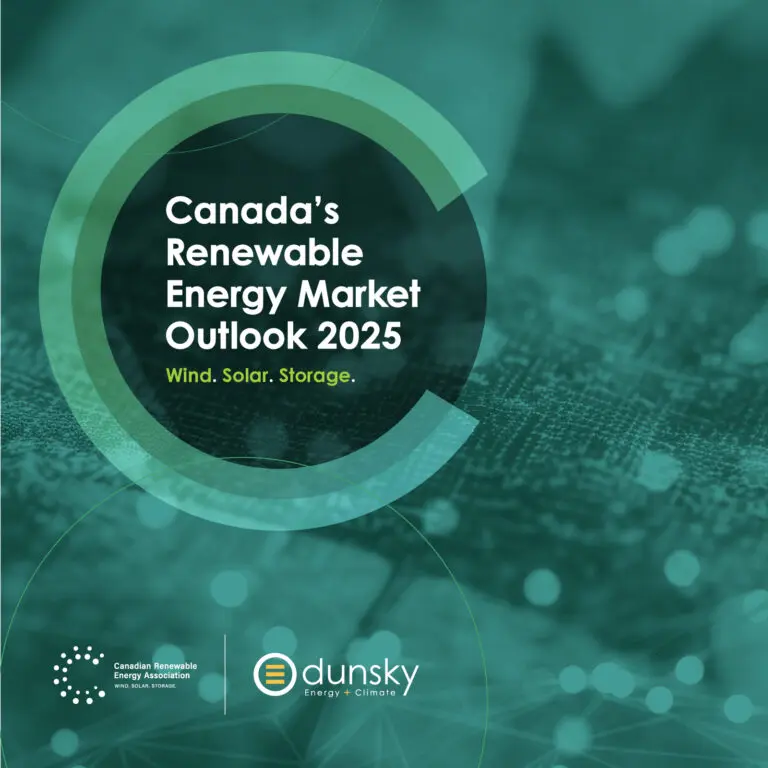CanREA will continue to work closely with the Province on advancing the energy transition in Nova Scotia.
Ottawa, November 28, 2024—The Canadian Renewable Energy Association (CanREA) congratulates Premier Tim Houston and the Progressive Conservative Party of Nova Scotia for their re-election to a second term.
CanREA plans to continue working closely with this government on the evolution of Nova Scotia’s Clean Energy Plan and the energy transition.
“With an election platform focusing on smart development for both the energy and natural resource sectors, this government has renewed its commitment to making Nova Scotia a world-class energy producer, which will lead to more opportunities for the wind, solar and energy storage sector in this province,” said Jean Habel, CanREA’s Senior Director for Quebec and Atlantic Canada.
CanREA worked closely with the Houston government during its first mandate, during which Nova Scotia made important progress in the energy transition, such as by enhancing behind-the-meter solar and launching two energy procurements, as well as several other energy projects, including energy storage.
“CanREA is committed to helping Nova Scotia achieve its energy transition goals. Atlantic Canada has a strong renewable energy and energy storage industry that stands ready to deploy solutions that will benefit all Nova Scotians,” said Vittoria Bellissimo, CanREA’s President and CEO.
For more information on your eligibility to join CanREA’s Atlantic Canada Network, please contact CanREA’s membership team.
Quotes
“CanREA is committed to helping Nova Scotia achieve its energy transition goals. Atlantic Canada has a strong renewable energy and energy storage industry that stands ready to deploy solutions that will benefit all Nova Scotians.”
—Vittoria Bellissimo, President and CEO, Canadian Renewable Energy Association (CanREA)
“With an election platform focusing on smart development for both the energy and natural resource sectors, this government has renewed its commitment to making Nova Scotia a world-class energy producer, which will lead to more opportunities for the wind, solar and energy storage sector in this province.”
— Jean Habel, Senior Director for Quebec and Atlantic Canada, Canadian Renewable Energy Association (CanREA)
For interview opportunities, please contact:
Michaela Ianni, Communications Specialist
Canadian Renewable Energy Association
communications@renewablesassociation.ca
About CanREA
The Canadian Renewable Energy Association (CanREA) is the voice for wind energy, solar energy and energy storage solutions that will power Canada’s energy future. We work to create the conditions for a modern energy system through stakeholder advocacy and public engagement. Our diverse members are uniquely positioned to deliver clean, low-cost, reliable, flexible and scalable solutions for Canada’s energy needs. For more information on how Canada can use wind energy, solar energy and energy storage to help achieve its net-zero commitments, consult “Powering Canada’s Journey to Net-Zero: CanREA’s 2050 Vision.” Follow us on Twitter/X and LinkedIn. Subscribe to our newsletter here. Learn more at renewablesassociation.ca.
Recommended for You

CanREA Connects—Atlantic Canada fall networking reception
CanREA’s Atlantic Canada fall networking reception was a resounding success, bringing together almost 70 key players from the renewable energy sector in Halifax. […]

CanREA celebrates launch of Nova Scotia Green Choice Program RFP
The Canadian Renewable Energy Association (CanREA) is pleased to welcome the launch of the Nova Scotia Green Choice Program, as announced by the Government of . The Green Choice Program Request for Proposals will be open to wind and solar energy projects, aiming to generate 350 megawatts of renewable electricity by 2028. […]










